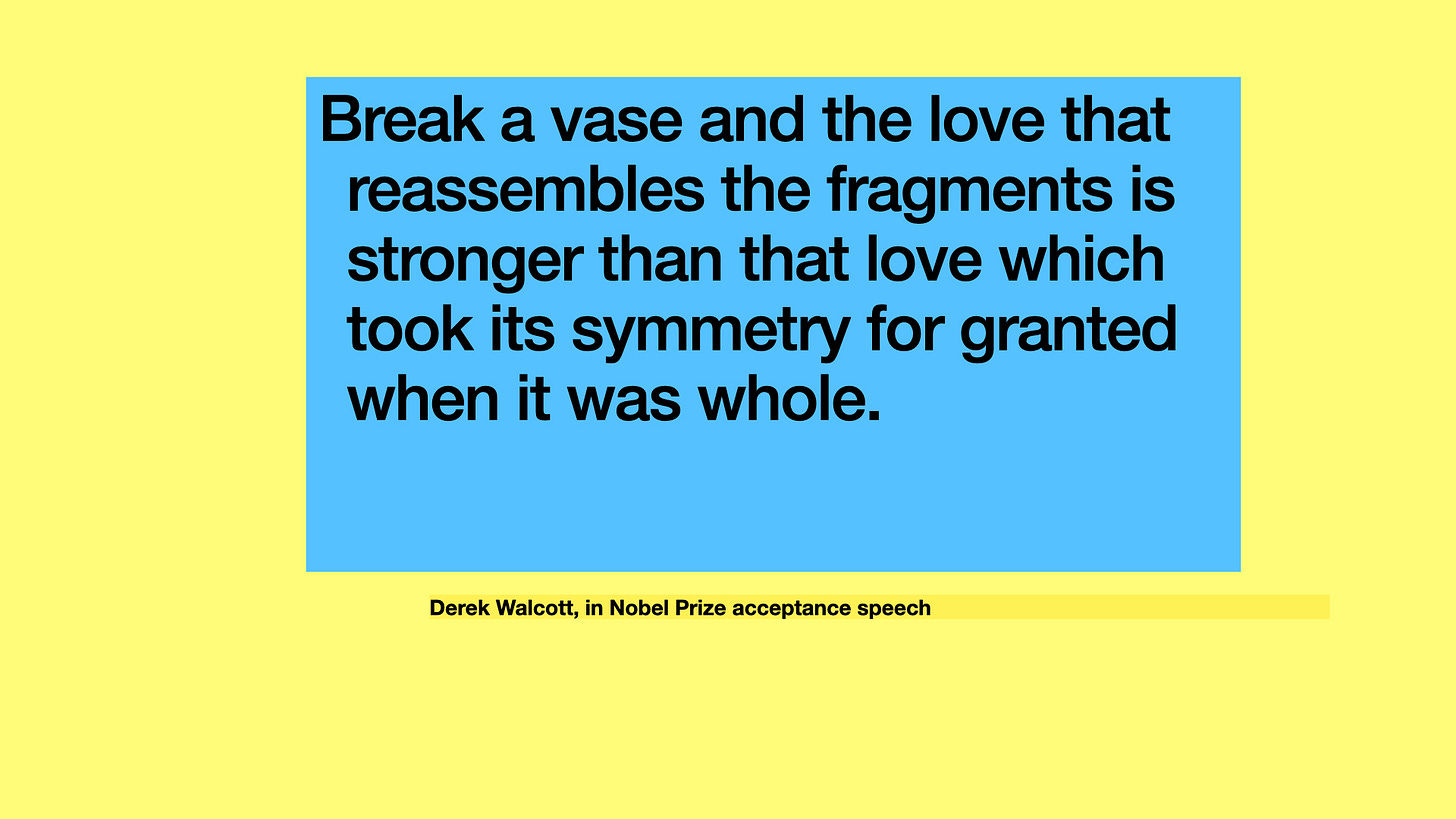In September of 2021, HBO launched a limited five-episode series: a remake of Ingmar Bergman’s 1973 TV series. Hagai Levi wrote the teleplay with Amy Herzog. I wrote about it earlier and revisit what I wrote for a couple of reasons:
First, HBO is still running the series. Second, the reviews missed a critical success by Levi. The critics need to be taken on—and I’m here to do it again.
Before I begin, a shoutout to our next byliner Alicia Kenworthy whose terrific, funny and smart voice can be read on Catalectic. I think she’ll want to watch this series if she hasn’t already. This savvy gal is an expert on love and lingerie (understatement!).
Hagai Levi, Scenes from a Marriage—and when the critics don’t get it.
Levi is an Israeli director and writer who came to fame with Be’Tipul that was adapted by HBO for the terrific series In Treatment and Levi had a hand in that too. Gabriel Byrne was marvelous in season one of that series:
It’s worth buying if you can’t access season one from HBO.
Back to my subject here:
Scenes from a Marriage: When the critics don’t get it!
Daniel Bergman, one of the executive producers, is the son of Ingmar Bergman, who created the original Swedish TV series, later a film available on HBO. I watched Levi’s series and Bergman’s film to write this.
Daniel Bergman, a Swedish film director in own right, approached Levi some years ago about doing the series and became an executive producer. Levi says it took him a while—some eight years—to figure out what he wanted to do and how though he admits to being inspired by Ingmar Bergman. In an interview with Variety, Levi said, “I felt that [Ingmar] Bergman’s spirit was floating somewhere and keeping an eye on me.”
It took courage to take on a Bergman masterpiece.
What Levi did makes the original series by Ingmar Bergman even more relevant today. He does so with powerful choices. One, in particular, has been lambasted by critics:
The “conceit” to break the fourth wall in every episode—with a decided difference in how he does it in the final episode.
At the start of the first four episodes, Levi begins with a view of the set as the stars Jessica Chastain and Oscar Isaacs enter. In the final episode, he closes with a break in the fourth wall that shows the actors getting into robes and leaving the set, arm in arm and with much real-life affection as each enters his dressing room.
Play acting over, real affection takes center stage—and that metaphor resounds.
Chastain and Isaacs attended Julliard together. Isaacs has said, “To work with Jessica on this was to be in a state of total synchronization.”
What happens on set with these two stars cuts to the heart. Much of the success has to do not only with their charisma but clearly with Levi’s choices.
Here's what I mean: Not only “the conceit” of breaking the fourth wall but also his choice to omit one of Bergman’s episodes.
The critics don’t “get” what Levi has achieved. They express bemusement (a kind way to put it) over breaking the fourth wall and focus on women’s liberation, independence, and divorce.
Let’s look at the titles first. Most are exactly the same. I’ll focus particularly on this one: “The Illiterates”.
Here are all the titles from the original six-part Bergman series. Levi used all but the second in his five episodes. His omission of #2 “The Art of Sweeping Things Under the Rug” is in itself revealing.
Here are all the titles from the original Bergman series:
1. “Innocence and Panic”
2. “The Art of Sweeping Things Under the Rug” (not used by Levi)
3. Pauline –“Poli” in Levi’s remake. He reversed the roles of the two main characters. Poli is Mira’s lover.
Levi gives the role of the partner who leaves the marriage to Mira (Jessica Chastain) along with most of the inclinations and intentions of Johan (Erland Josephson) who leaves Marianne (Liv Ulmann) from Bergman’s original, increasing the emotional weight of loss for Jonathan (Oscar Isaacs) in Hagai’s version. In both versions the emotional weight and significance of what occurs in the marital relationship weigh heavily on the partners.
4. “Vale of tears”
5. “The Illiterates”
6. “In the Middle of the Night in a Dark House”
On “The Illiterates,” in an interview with Ben Travers of Indiewire, Levi said, “There is an episode … when Mira says that they’re illiterate about breakups, not about divorce, not about marriage.” I believe he’s exploring love, marriage and commitment.
Having watched both the original and Hagai Levi’s remake, I’m struck by the intensity of both and, in contrast to many reviewers of the HBO mini-series, I assert that Levi has done a sterling job of recreating and increasing the intensity of the original. The performances by Chastain and Isaacs are marvelous, moving, and in each episode, both hold the viewer with immersions in the roles.
Levi’s choices bring new depth to the roles and inform the conflict.
The deeper conflict Levi reveals focuses on our understanding today of the ease of breakups and the prevalence of divorce. But what he and Bergman also explore is the way we’re illiterate about the complexities of love that lasts.
Levi’s use of breaking the fourth wall, on one level, pays homage to Bergman’s achievement by showing us these are “scenes” from another theatrical version.
In the last episode of the HBO series, he does this incredibly effectively. Mira repeats to Jonathan this line: “In the middle of the night, without much fanfare, in a dark house in the middle of the world.” When asked by Jonathan: “What’s that?” She replies, “It’s from a movie.” The “middle of the night” line is what Johan says to Marianne at the end of the Bergman series.
Levi’s focus is play acting. Breaking the fourth wall causes the viewer to step back from the play acting, to take the whole of what we’re seeing and examine our suspension of disbelief.
He causes us to check ourselves. The observation that we’re watching a fiction works like a boomerang. We must look at his attempt in the abstract. I think Levi may even have said that in the interview I referred to earlier.
He asks us to look inside ourselves and ask key questions about what love that lasts is worth.
These “Illiterates” are play acting their way through a love that has bumped up against trouble: Another attraction, the boredom of the everyday-ness of marriage.
I think he chose not to use “Sweeping Things Under the Rug” because he doesn’t need that “telling.” He’s got more to play with about the nature of love and the plays we create for ourselves. Something bigger is under Levi’s rug.
What becomes clear in every episode is that despite Jonathan’s and Mira’s assertions that they are meant to be apart, we see that they delude themselves, that they proceed to do everything they can to preserve the love they’ve broken. They do so without getting formally back together.
Too easy is the explanation that monogamy is dead. Bergman had five marriages—and that may have been his view. But I don’t think it’s Levi’s, despite his admission that he has experienced a divorce.
The power of the new HBO series is its intense focus on love that inexorably lasts, its worth. Levi intensifies the effect because today divorce is so common whereas in Bergman’s day, the opposite was true. The Bergman series was, in fact, credited with dramatically increasing the divorce rate in Sweden the year after the series ran in 1973.
The play acting of the characters is emphasized in Levi’s remake with his use, just one example, of Purim as the anniversary moment that Jonathan recalls for him and Mira. Levi, a Jewish Israeli, has given Jonathan a deeply Jewish past. Purim that occurs most often in March—and why I chose to post this in that month—is the holiday for dress-up, for play acting, much as these two characters have play acted the truth of their love by disputing it only to affirm its importance.
Don’t miss Jonathan’s nightmare in the fifth episode that totally mirrors Marianne’s in the Bergman series. I won’t explain because it’s a “spoiler.”
You gotta watch this series.
After her similar and disturbing nightmare, Marianne, in the Bergman series, asks, “Have we missed something?”
Yes, these characters have missed this: Play-acting as metaphor for reality: The reality of love that can last—despite breakage.
Mary Tabor writes writes Only Connect …











I’ve rarely felt as hopeless about marriage as I have while watching Bergman. It’s not surprising that he influenced divorce rates in Sweden! I had an undergraduate professor who said that few people would have the courage to start over again with the person they married, knowing all they’d learned over the years. At the time I thought it was the most depressing thing I’d ever heard. Now it simply seems honest.
You really helped me understand and appreciate the unusual breaking of the fourth wall in this series. As usual, you give me more insight than many of the critics and add to my viewing (and reading) pleasure!